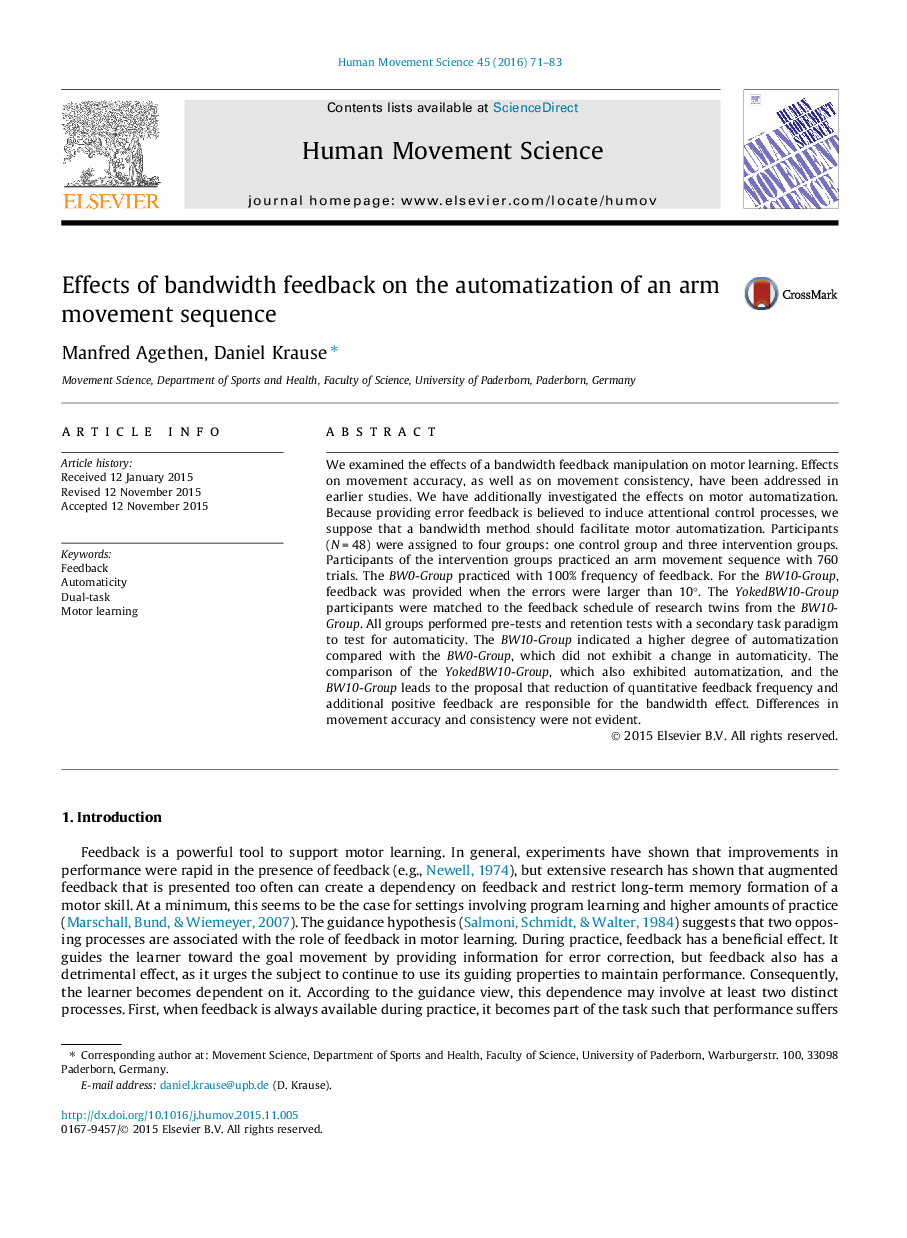| Article ID | Journal | Published Year | Pages | File Type |
|---|---|---|---|---|
| 7291611 | Human Movement Science | 2016 | 13 Pages |
Abstract
We examined the effects of a bandwidth feedback manipulation on motor learning. Effects on movement accuracy, as well as on movement consistency, have been addressed in earlier studies. We have additionally investigated the effects on motor automatization. Because providing error feedback is believed to induce attentional control processes, we suppose that a bandwidth method should facilitate motor automatization. Participants (N = 48) were assigned to four groups: one control group and three intervention groups. Participants of the intervention groups practiced an arm movement sequence with 760 trials. The BW0-Group practiced with 100% frequency of feedback. For the BW10-Group, feedback was provided when the errors were larger than 10°. The YokedBW10-Group participants were matched to the feedback schedule of research twins from the BW10-Group. All groups performed pre-tests and retention tests with a secondary task paradigm to test for automaticity. The BW10-Group indicated a higher degree of automatization compared with the BW0-Group, which did not exhibit a change in automaticity. The comparison of the YokedBW10-Group, which also exhibited automatization, and the BW10-Group leads to the proposal that reduction of quantitative feedback frequency and additional positive feedback are responsible for the bandwidth effect. Differences in movement accuracy and consistency were not evident.
Related Topics
Life Sciences
Neuroscience
Cognitive Neuroscience
Authors
Manfred Agethen, Daniel Krause,
